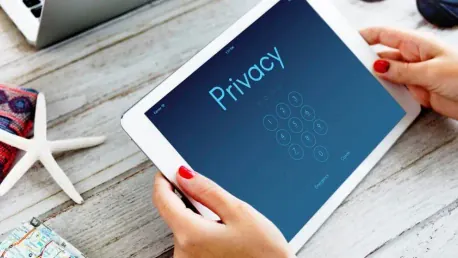In today’s hyperconnected world, your online presence is more than just an extension of your identity; it’s a treasure trove for cybercriminals. Every click you make online, from shopping and Facebook scrolling to sending an email, leaves a trace that can be used. Evolving digital threats, from phishing scams to major data theft, point to the need for proper internet security. The digital landscape requires users to be vigilant and proactive in safeguarding their personal information. By taking deliberate steps to secure your online activities, you can avoid becoming a target of cybercrime and maintain control over your digital footprint.
1. Create Strong, Unique Passwords
One of the most fundamental steps in protecting your online privacy is to create strong and unique passwords for each of your accounts. Avoid using common phrases or easily guessed information such as “password123” or your pet’s name. Instead, mix uppercase and lowercase letters, numbers, and special characters to formulate a robust password. For example, a combination like “T!m#B3rw0lf” is far more secure than any simple word or a sequential number series.
A password manager can also be a valuable tool, as it generates and stores strong passwords, saving you from needing to remember each one. By employing such a tool, you not only enhance your security but also simplify the management of different passwords. This eliminates the tendency to reuse passwords across multiple accounts, which could lead to a domino effect if one account gets compromised.
2. Activate Two-Factor Authentication (2FA)
Two-factor authentication (2FA) is a critical layer of security that significantly boosts your online account protection. Beyond just using a username and password, 2FA introduces an extra step in the verification process, such as a code sent to your mobile phone or an authentication app. This means that even if someone obtains your password, they will not be able to access your account without the second verification step.
Implementing 2FA can deter unauthorized access to your accounts, as cybercriminals would need to bypass this additional security measure. Many online services, including email providers, financial institutions, and social media platforms, offer 2FA options. It’s advisable to enable 2FA wherever possible to maximize your online security.
3. Avoid Clicking on Suspicious Links or Opening Unfamiliar Attachments
Cybercriminals frequently use phishing scams to deceive individuals into providing sensitive information. These scams often manifest through suspicious links or attachments in emails, messages, or social media posts. To protect yourself, it’s essential to be very cautious about which links you click on and how you respond to unsolicited emails or text messages.
Phishing attempts typically mimic legitimate organizations, making it difficult to discern their authenticity. Before clicking any link or downloading an attachment, verify the source by contacting the organization directly through their official channels. Practicing these precautions can significantly reduce the risk of falling victim to phishing attacks.
4. Utilize Privacy-Focused Tools
Leveraging privacy-focused tools can significantly enhance your online security. Virtual Private Networks (VPNs) are essential for safeguarding your internet connection and anonymizing your online activities. By encrypting your internet traffic, VPNs prevent unauthorized parties from intercepting your data. In addition to VPNs, utilizing privacy browsers can help reduce online tracking. Browsers such as Brave or Firefox are designed to block trackers and protect your online behavior from being monitored and exploited for advertising purposes.
Moreover, data removal services like Incogni can assist you in eliminating your personal information from data brokers. These brokers collect and sell your data, often without your explicit consent. Using a data removal service adds another layer of protection for your digital privacy, ensuring that your personal information remains under your control.
5. Encrypt Sensitive Communications
Encrypting your sensitive communications is an essential step in protecting your privacy. End-to-end encryption ensures that only you and the intended recipient can read the messages you send. Apps like Signal and WhatsApp offer this type of encryption, providing robust security for your private conversations. This prevents any third parties, including service providers, from accessing the content of your conversations.
Taking these measures seriously helps to maintain the confidentiality of your communications, especially when discussing sensitive topics. Be cautious about which platforms you use for communication, and always opt for those with strong encryption features to uphold your privacy.
6. Refrain from Using Public Wi-Fi for Sensitive Transactions
Public Wi-Fi networks, like those found in cafes or airports, are often unsecure and can be exploited by cybercriminals to intercept your information. When using public Wi-Fi, avoid conducting sensitive transactions such as online banking or shopping. If you must access sensitive information while on a public network, use a VPN to encrypt your connection and protect your data from potential attackers.
Taking these precautions ensures that your personal and financial information remains secure even when you are on the go. By being mindful of the risks associated with public Wi-Fi and employing protective measures, you can significantly reduce your vulnerability to cyber-attacks.
7. Regularly Monitor Financial Accounts
Regularly monitoring your financial accounts is crucial for detecting any unauthorized activity. Frequently check your bank and credit card statements for any unfamiliar charges or transactions. Early detection of suspicious activity allows you to take immediate action, such as contacting your bank or credit card provider to report fraud and freeze your accounts if necessary.
Setting up alerts for large transactions can further enhance your vigilance. These alerts notify you of any significant activity, enabling you to respond quickly to potential threats. By staying proactive in monitoring your financial accounts, you can safeguard your finances and prevent significant loss.
8. Adjust Privacy Settings on Social Media
Social media platforms often encourage users to share extensive amounts of personal information, which can be exploited if privacy settings are not properly configured. Take control of your social media privacy settings to determine who can see your posts and personal information. Limiting access to your profile helps protect your online presence from cybercriminals and unauthorized viewers.
Additionally, disable features like location tagging and activity sharing that could expose sensitive details about your whereabouts and actions. Being proactive in managing your privacy settings is a simple yet effective way to enhance your security on social media.
9. Be Cautious About What You Share Online
Sharing personal information online can dramatically increase your vulnerability to cyber threats. Avoid posting sensitive details such as your address, phone number, or travel plans, as these can be used by cybercriminals to target you. The information you share online can be pieced together to build a comprehensive profile, which can then be used for identity theft or other malicious activities.
Being mindful of what you share not only protects your immediate privacy but also helps maintain your long-term security. Keeping personal details private online is a key practice in defending against various cyber threats and maintaining control over your digital footprint.
10. Review Permissions for Linked Apps and Websites
In today’s highly interconnected world, your online presence goes beyond being a simple extension of your identity; it becomes a treasure trove for cybercriminals. Every action you take online, from shopping to scrolling through Facebook or sending emails, leaves behind a digital footprint that can be exploited. With evolving threats like phishing scams and major data breaches, the necessity for proper internet security has never been more critical. The digital landscape demands that users remain vigilant and proactive in protecting their personal information. By implementing deliberate security measures such as strengthening passwords, enabling two-factor authentication, and being cautious about sharing personal details online, individuals can significantly reduce their chances of falling victim to cybercrime. Regularly updating software and staying informed about the latest threats also play crucial roles in maintaining control over your digital footprint. Taking these steps not only helps safeguard your information but also provides peace of mind in an increasingly digital age.









